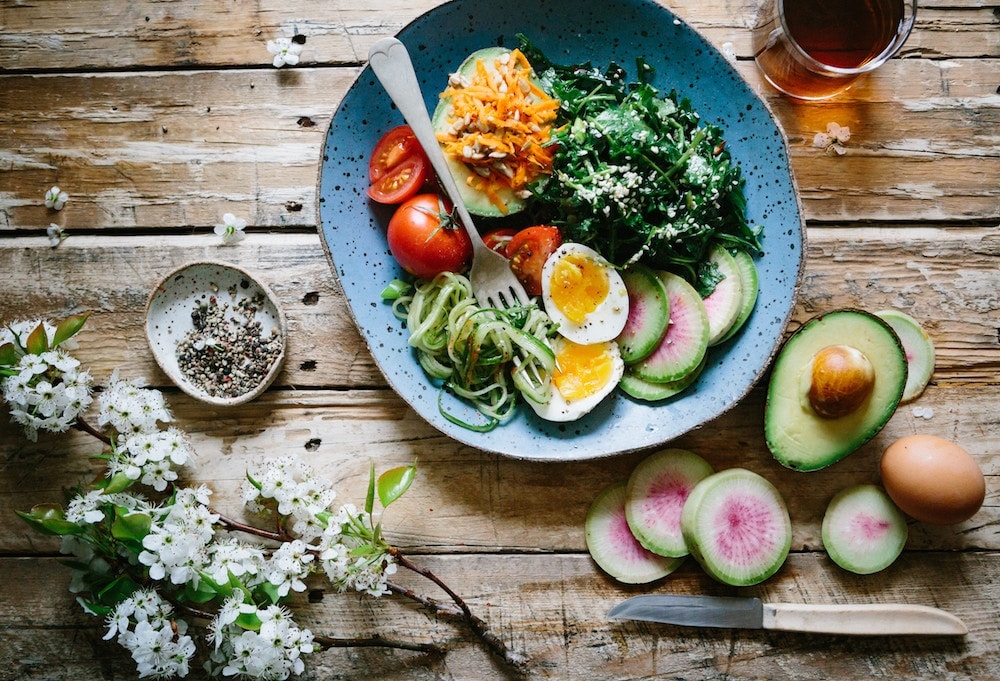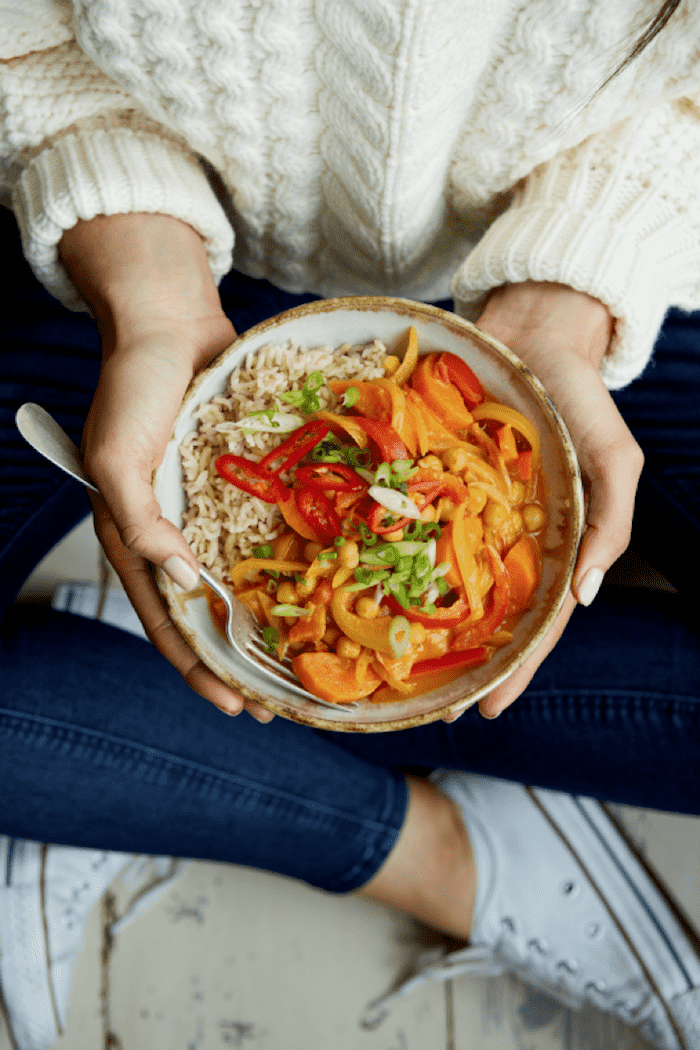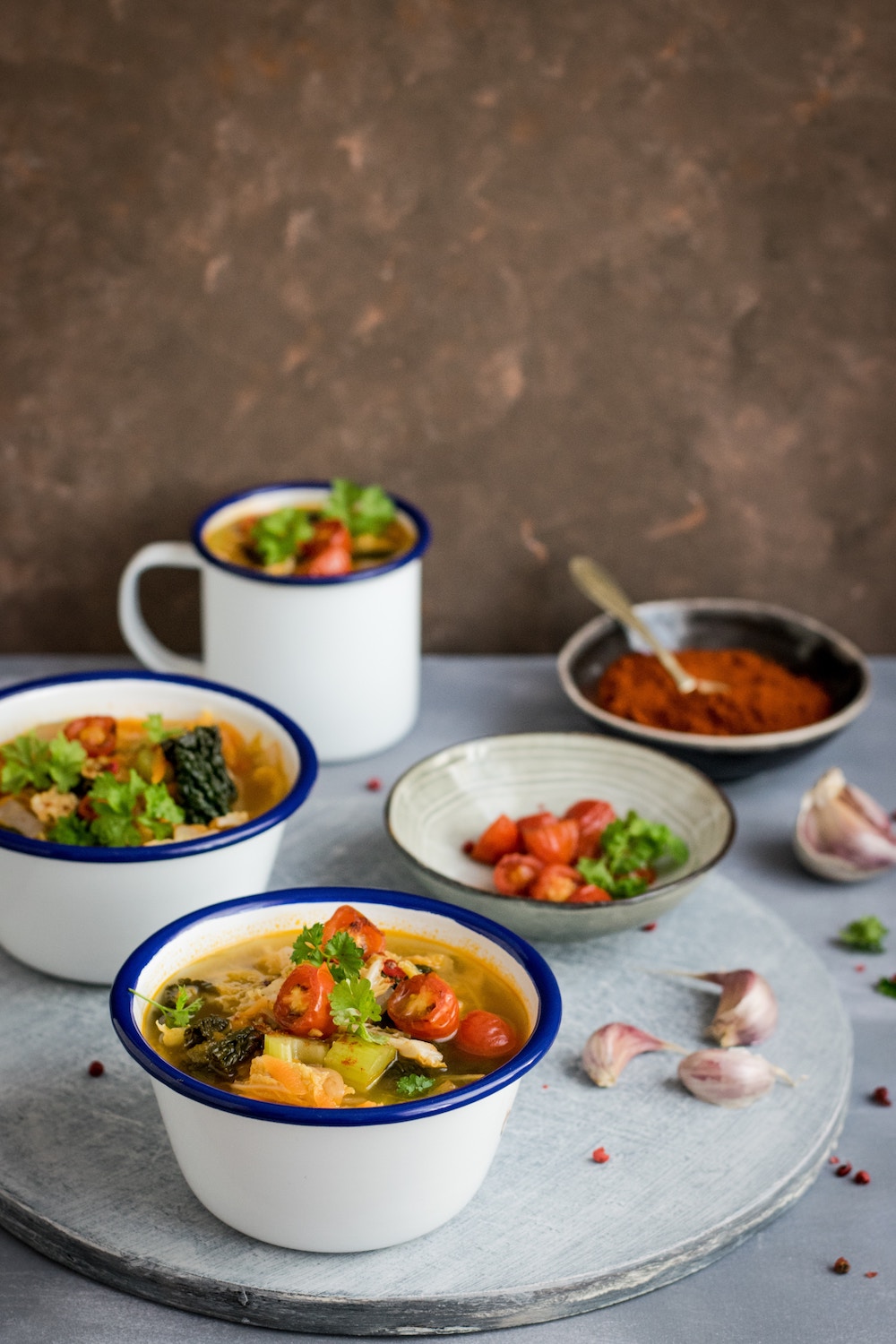
Doctor-turned-Instagram star and author Hazel Wallace, aka The Food Medic, on why eating right can make us feel so good
Hazel Wallace was just 14 when her dad suffered a stroke at the dinner table of their family home. He died three days later and for a year, as she struggled to process her grief, Hazel turned her back on eating, and slowly faded away physically and mentally.

Depressed, anxious and with a dangerously low BMI, Hazel finally turned to her GP who referred her to a dietitian and, slowly but surely, she rediscovered a love of food, gained weight, and had an epiphany.
“That was the moment I realised that food had the power to feed the body and the mind,” says Hazel, 27, from Dundalk, Ireland. “Before that I was a shell of my former self, but by eating I was able to think better, my mood improved and I was able to interact with people again. Food was giving my body fuel but also making me feel so much better on a mental level. If anything, it helped me get through that depression and grief.”
At uni, Hazel experienced troubled eating at another extreme. She gained three dress sizes after making the wrong food choices, but transformed her lifestyle by committing to cooking nutritious meals and doing regular, fun workouts. She initially shared her journey on Instagram and then set up her blog, The Food Medic.
Now a certified personal trainer and with a growing army of Instagram followers (215k and counting), Hazel’s USP – a daily delivery of tasty, healthy recipes, at-home workouts, plus digestible portions of nutritional research, has made her a trusted health and fitness icon.
As she releases her second book, The Food Medic For Life, Dr Hazel Wallace shares some nuggets of nutritional nuance...

Photograph | Ellia Parrinder
When did you realise that food could benefit the mind as well as the body?
When I was grieving after the loss of my dad. I didn’t fully grieve until I was about 16, and I’d lost a lot of weight because I hadn’t felt like eating. By working with a dietitian through a structured approach, I wasn’t concentrating on healthy food, just whatever food I enjoyed. As I started putting on weight, I felt like I was coming alive again. I fell back in love with food by spending time cooking with my mum.
Do you think you had an eating disorder?
No, because I never had a distorted body image, and it wasn’t an issue with food itself. I just stopped caring for myself and eating became a chore. I recovered straight away through just eating, but my BMI did get very low.
Did you understand the MH benefits of exercise from a young age?
I did every sport under the sun, including field hockey, but when I went to university I stopped. On a couple of levels that affected my mental health because I wasn’t staying active so I wasn’t getting that endorphin-hit and fresh air, but also I didn’t get the sense of community that I got from team sport, so it isolated me. There’s so much evidence that sport can reduce your risk of depression because it keeps your brain active. I now aim to go to the gym three to four times a week and, if not, I can do my sessions at home.
What is the connection between food and mental health?
If you feed your body well, you’ll feed your mind. Essential fatty acids like Omega 3 are good for brain health, and you find this in oily fishes like tuna and salmon, or in chia seeds and flaxseed. We also know that high fibre foods, such as fruits, vegetables, whole grain and lentils, are good for our brain health because fibre is good for your gut. Our gut and brain are intimately linked through a network of nerves, so if you’ve got a healthy community of good bacteria, it’ll improve your mood.
If you are nutrient deficient, it can have a prominent affect on your mental health.
If you’re consuming loads of stimulants – caffeine, sugar or alcohol – it will have a negative effect on your brain function because it’ll cause surges and dips in energy. A lot of people find that having a glass of wine will help them sleep better but, actually, it reduces the sleep quality so you wake up less refreshed.

Photograph | Ellia Parrinder
How can eating help combat stress?
When we don’t eat for a couple of hours we get “h-angry” and that’s because low blood sugar causes irritability. I’d recommend having regular meals, don’t depend on foods that will feel good in the short-term, like sugary and high-fat foods, because they won’t power you through the day. Try to get as much nutrient-dense food into you as possible. Foods that are high in Omega 3 and foods that are high in Vitamin B12 – meat, fish and eggs – are good for your brain and nerve health as well.
Does mindful eating improve health?
A lot of people find they have bad digestive symptoms and they put it down to irritable bowel syndrome (IBS). Although they may have a diagnosis of IBS, a lot of the symptoms could be managed through stress management. A nerve, called the vagus nerve, goes from our brain to our gut, so when you’re stressed, your gut won’t digest properly. If you relax, take care of yourself, eat slowly and chew your food, you’re less likely to have bloating, constipation and diarrhoea.
Did you have therapy after your dad died?
I went to one session and found it unhelpful because I didn’t like the manner of the woman. I consider my approach to food and nutrition my therapy. It’s how I keep my mind and body in check. The best way for someone who thinks they’re at risk of having mental health problems is to look after themselves and have safety nets in place – a good, active social life and good nutrition so you’re physically able to deal with stresses – and also practising mindfulness and meditation, which we’re using in the NHS to help deal with recurrent depression. It’s all about changing your mindset and reframing your thinking. I feel like I’m a much stronger person because of how I have tailored my lifestyle.
Dr Hazel’s tips for eating yourself mentally healthy
1) Pick the probiotics
Foods that are good for your gut, like live yoghurt and fermented jars of vegetables such as kefir, kimchee and kombucha, also help your brain.

2) Stay regular
If you’re going to skip a meal and dive into the biscuit tin, that surge of comfort and energy will drop after a couple of minutes and you’ll feel irritable.
3) Baby steps
On week one, make a healthy breakfast every morning. The next week, make your lunch – doubling up on dinner the night before is the easiest way to do this. Then on week three, join the gym or go for a run. Build on the small things you’ve already done each week.
4) Exercise snacking
In the Netherlands, researchers looked at a group of diabetic patients and found that their blood sugar levels improved during smaller bursts of activity, rather than one longer session. Fit in little bits of exercise throughout the day, rather than lumping it all into the weekend.
5) Get organised
Schedule time on a Sunday to make some dinners for the week, so you’ve got healthy options after work. Diarise one-hour gym sessions on different days, because you’re less likely to cancel if it’s blocked out. And if you’re the type of person that puts exercise off, get up and do it first thing in the morning.
‘The Food Medic For Life’ by Dr Hazel Wallace is out now.
Hero Image Photography | Jon Payne

